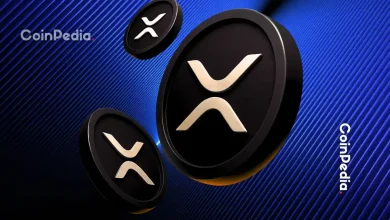
Ghana to Propose Crypto Licensing Framework by September amid rising demand for digital assets.
Bank of Ghana Sets August 15 Deadline for all VASPs to register, both local and international.
Ghana, a West African nation, is preparing to license cryptocurrency platforms in response to the growing demand for digital assets.
New Framework by September
According to a report from Bloomberg, the Bank of Ghana plans to propose a new regulatory framework by September to oversee and license crypto platforms nationwide. With around 3 million adults, which is about 17% of the population, already using cryptocurrencies, this move marks a significant step toward officially recognizing and regulating digital assets in one of Africa’s leading economies.
Ghana wants to regulate crypto to better manage its currency and collect more revenue. The cedi (Ghana’s currency) has been very volatile as it gained over 40% this year after falling nearly 20% last year, making it hard for the central bank to keep inflation under control.
Crypto Use Booms In Ghana
Bank of Ghana Governor, Johnson Asiama, noted that crypto is adding to the challenge as many people are sending and receiving payments in crypto, but those transactions are not showing up in the country’s official records. This is making it harder to keep track of the real economic picture.
Between July 2023 and June 2024, people in Ghana used crypto to make $3 billion worth of transactions. This is a big part of the $125 billion total for all of sub-Saharan Africa. This shows how active Ghana is in the crypto space, compared to the rest of the region.
Ghana Mandates Registration by August 15
Recently, the Bank of Ghana also announced that all Virtual Asset Service Providers (VASPs) operating within the country must register with the central bank by August 15, 2025. This rule applies to all crypto companies offering services to people in Ghana, whether they are local or international, and whether they operate in person or online. It covers services like crypto exchanges, digital wallets, safekeeping, and issuance or sale of crypto assets like stablecoins and ICOs.
- Also Read :
- Fact Check: Did BlackRock Announce a Merger With Ripple?
- ,
The central bank is taking steps to bring crypto under control as its use grows rapidly in the country. While registration doesn’t count as a license to operate, firms that fail to comply may face penalties or be excluded from future licensing opportunities.
Global Momentum Builds
The U.S. is leading the way in crypto regulation with the GENIUS Act, signed into law on July 18, 2025. It sets clear rules for stablecoins to encourage innovation and provide legal clarity.
Across the globe, countries in Africa, Asia, and Europe are all working on crypto regulations, licensing virtual asset service providers (VASPs), and focusing on key areas like stablecoins, anti-money laundering (AML), and investor protection.
Never Miss a Beat in the Crypto World!
Stay ahead with breaking news, expert analysis, and real-time updates on the latest trends in Bitcoin, altcoins, DeFi, NFTs, and more.
FAQs
Ghana will propose a regulatory framework by September 2025 to license and oversee crypto platforms.
About 3 million adults, or 17% of Ghana’s population, use cryptocurrency for payments and transactions.
The central bank wants to stabilize the cedi, improve tax revenue, and track crypto’s economic impact.
From July 2023 to June 2024, Ghanaians made $3 billion in crypto transactions, a major share of Sub-Saharan Africa’s $125B total.
Trust with CoinPedia:
CoinPedia has been delivering accurate and timely cryptocurrency and blockchain updates since 2017. All content is created by our expert panel of analysts and journalists, following strict Editorial Guidelines based on E-E-A-T (Experience, Expertise, Authoritativeness, Trustworthiness). Every article is fact-checked against reputable sources to ensure accuracy, transparency, and reliability. Our review policy guarantees unbiased evaluations when recommending exchanges, platforms, or tools. We strive to provide timely updates about everything crypto & blockchain, right from startups to industry majors.
Investment Disclaimer:
All opinions and insights shared represent the author's own views on current market conditions. Please do your own research before making investment decisions. Neither the writer nor the publication assumes responsibility for your financial choices.
Sponsored and Advertisements:
Sponsored content and affiliate links may appear on our site. Advertisements are marked clearly, and our editorial content remains entirely independent from our ad partners.








